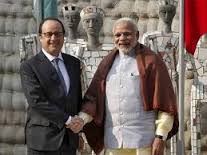“We need cooperation from State governments for infrastructure development. In Tamil Nadu, unfortunately, we had to terminate two projects,” said Nitin Gadkari, Road Transport, Shipping & Highways Minister. “We never mix politics with development and development with politics,” claimed Gadkari, speaking at ‘Breakfast with BusinessLine ’, an interactive session with senior executives from the corporate sector. But in Tamil Nadu, he said, his Ministry had to give up on the Maduravoyal-Chennai Port elevated road project as there was no progress. Gadkari said he had “written many letters to the State government” to no avail.
Another road project, by L&T, also had to be shelved, said Gadkari, who is touring the State to campaign for the BJP in the Assembly elections, which will be held on May 16.
“We need an atmosphere in the country for development of infrastructure. Our government and my ministry look for ways to help develop infrastructure in different States with different political parties but sometimes we are helpless,” he shrugged.
“I am not speaking politically, but I am talking of practical issues such as forest and environment clearances,” claimed Gadkari.
There is strong political will at the Centre and speedy decision making. Positive cooperation from stake holders will help achieve goals, he said.
Sagarmala programme
Tamil Nadu will be a huge beneficiary under Sagarmala, a Rs. 4-lakh-crore flagship programme of the Centre envisaging port-led development. Conceived as a 10-year project, he hopes to complete it in five years.
Gadkari listed out projects totalling more than Rs. 80,000 crore relating to port and industrial investments in Tamil Nadu. Under Sagarmala, the State will get an LNG terminal at Ennore at a cost of about Rs. 3,000 crore; at Tuticorin Port, a North Cargo Berth, a foodgrain berth, an additional container berth and a coal jetty are planned.
Also in the pipeline is the development of ports at Sirkali and Colachel. Work on all of these will start within two years, he said.
Huge investments are also planned in developing inland waterways using the major rivers in the State, including the Tamiraparani, Manimuttar, Cauvery, Palar, Vaigai and the Bhavani. These present a huge opportunity for private sector investments, he said.






